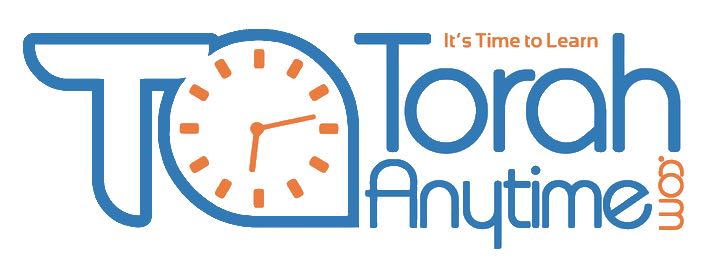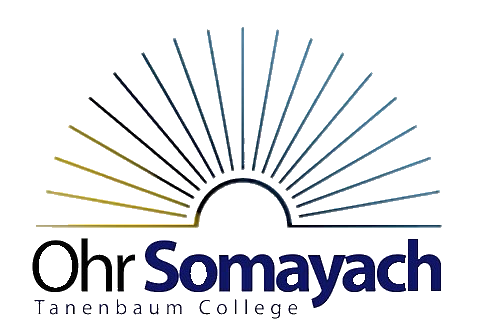Parashas Shemos
/The Chazal tell us that though we learn from our rebbeim and our chaverim, we learn the most from our talmidim. This point has been driven home to me on many occasions. Sometimes. when I’m at the beginning of one of my brilliant shiurim, having just posed over half a dozen unanswerable questions and as I stand poised to introduce several apparently unrelated sources in order to weave them into a tapestry of pure brilliance, some student will have the audacity to raise their hand and answer all my questions. Often with a simple straightforward explanation that fits the words of the text perfectly. And they read it in the Artscroll. At that point I remember what I have learnt most during my years of teaching – hold all questions till the end. Just kidding, of course. But I have seen fit to jettison material that I had spent a lot of time thinking about, because my students challenge me to think in new and different ways.
On the other hand, my students have on occasion taught me how far the human mind will go in order to avoid facing untidy details. Like obvious Rashi’s. Few things drive some students absolutely crazy as my asking the simple question – why is Rashi telling me this? Surely one of the most brilliant minds in history doesn’t have to state the obvious? “Maybe he wanted to” one suggested. “Maybe he was being paid by the word” I have heard more than once by students who have obviously never read Dickens to see what someone who got paid by the word really sounds like.
I had this experience two years ago on Parshas Shemos. The Torah speaks of the two midwives who defied Pharaohs evil decree to kill all the male children. Their names, the Torah tells us, are Shifra and Puah. Now it’s not surprising that these two brave women would merit special mention by the Torah. What is surprising is that after this courageous act they vanish from history. Especially since the Torah tells us that Hashem rewarded them with batim, houses. It’s hard to believe that after they behaved in a way that was so historically significant, all they got was a house! Now granted, those of us in Eretz Yisroel with children to marry off, may attach a disproportionate amount of importance to the gift of a house. For the benefit of those of you from Chutz Laaretz, allow me to explain. You see, although you have to make a wedding, in Eretz Yisroel, it’s considered appropriate to provide the young couple with an apartment. Or as someone once explained at a Sheva Berachos, Calev had promised that whoever captured Kiryat Sefer could marry his daughter. Now we say anyone who marries my daughter can have an apartment in Kiryat Sefer!
Rashi explains of course that Shifra and Puah are in fact Yocheved and Miriam, Moshe’s mother and sister. The houses they receive are the houses of Malchus and Kehuna and Levia. This explains the apparent disappearance of Shifra and Puah and the meaning of the houses that Hashem gives as their reward, houses of far greater historical significance. The simple question I asked that upset my students was, why doesn’t the Torah say Yocheved and Miriam! It’s clear from the questions we asked that they must be someone else, so why not just say it. Why force us to have to discover their identities?
Rashi, of course explains the meaning of the names Shifra and Puah – Shifra because she would lishapir, clean up and beautify the baby and Puah because she would Pooh Pooh the baby, sing and coo to calm the baby down. Now the truth is, that that sounds like an explanation after the fact. If I tell you the Torah calls Yocheved “Shifra” then that’s as good an explanation as any. But I don’t believe if we were writing the Torah we would change Miriam's name to “Cooer” because she used to coo to the baby. When I ask my children what their gannenet’s name is they never call her “Singing Lady” or “Story Teller Lady” (obviously Rabbi Chanoch Teller is the exception to this rule since he is michanech through his telling).
To understand this Rashi, and for that matter Parshas Shemos we need to understand, as a relatively obscure English poet once asked, “What’s in a name?”
We say three times a day אתה קדוש, ושמך קדוש “You are holy and Your name is holy”. What is the “name” of Hashem and why does He have so many of them? A name describes something. In English the designation is random – an egg is not inherently an egg, there’s nothing chairish about a chair and “a rose by any other name would smell as sweet”. In Lashon HaKodesh, however, the name of something tells us it’s essence. It’s like a strip of DNA – read it and you know everything you need to know about the thing itself.
That was the tremendous accomplishment of Adom HaRishon. Hashem called upon him to name all the animals. He obviously wasn’t expected to simply call the dog Spot or the monkey Curious George. He gave each one it’s name – the name that told you everything you needed to know about the animal, either through the meaning of the word, the gematria, the shape of the letters, etc. The name was as effective a tool for understanding the animal as a strip of it’s DNA – more even, because it told you about its role and purpose in creation.
So of course Hashem can’t have a real name. If you assigned Him a name that would imply that I now understand everything about Him, and that of course is impossible. Hashem is Infinite. The world we live in is finite, limited. Science tells us that in order to have time and space, we need matter. Without matter there is no space! What does something look like that has no space? Can our minds even grasp such a concept? (No, is the correct answer). In order to have a name for Hashem you would need an infinite name, which again is a problem for us finite beings. What I can do, however, is try to understand how Hashem manifests Himself in this world. Every “Name” of Hashem describes an aspect of how we understand how Hashem reveals Himself in this world. “You are Holy”, we say, in Your Absolute Infinite essence. However, since that’s something I can’t possibly relate to, I say what I can grasp - “Your name is holy”. Let me at least praise what I can give a name to, our understanding of Hashem’s hanhaga in this world.
In Tanach, people have names that tell us about their essence. Unlike animals, however, some people are multifaceted. Yisro had seven names, Moshe ten. Avram and Sarai become Avraham and Sorah and through their name change become different people with a different destiny. The meforshim explain what is happening in Yaakov’s life at each point that causes the Torah to refer to him by the name Yaakov or Yisroel.
So of course for all intents and purposes, Yocheved and Miriam were their names and described who they were in their essence. Except when it came to their jobs as midwives. The Chofetz Chaim asks how it’s possible that two women could be the midwives of thousands and thousands of women? The answer is that they didn’t allow anyone else to take the job because they were afraid that someone might actually carry out Pharaoh’s evil decree. It is difficult to imagine the amount of mesiras nefesh necessary to do a job like that – running from woman to woman, from baby to baby. Therefore in regard to this role they were Shifra and Puah. It wasn’t a job they did, it was what they became. It was their entire essence.
And what is our name? Who are we? The only time the average person gets to have a glimmer of Divine inspiration is when they name their children. What our name is can tell someone a lot about who we are. About twenty-five years ago my brother attended an ulpan with a friend. The ulpan teacher asked my brother “מה שמך”? Although my brother’s Hebrew wasn’t great, he figured out what the teacher wanted and told him his name. Pointing to my brother’s friend he asked “מה שמו”? Indignantly my brother’s friend loked at the teacher and said “who are you calling a shmo?” I guess some people’s name is shmo. Other people have fancier names, like famous businessman, important lawyer, a medical specialist who’s the head of the department. He’s the butcher, the baker, the psychologist. I was once introduced to someone known as the shmatta king. Who are we? What’s our real name? The Brisker Rav met a fellow and asked him who he was? The fellow told him all about his lucrative business ventures until the Brisker Rav interrupted him by saying, “I didn’t ask how you earn your money, I asked who are you?”
When I was in America a few years back I bumped into an old acquaintance I hadn’t seen in many years. When I told him I lived in Eretz Yisroel he asked me “Where do you learn?” Before I could respond he said “The truth is, I don’t know what you’re doing, but whenever I meet someone from Eretz Yisroel and ask what they do, they say they’re in learning. One guy was working in computers full time, another one had a business, but they all said they were in learning”. That was their name – a person in learning. Some people have names like Ben Torah, Bas Yisroel Baal Midos. Those are their real names because it describes who they really are in their essence.
ואלה שמות בני ישראל הבאים מצרימה “And these are the names of the B’nei Yisroel who came to Mitzrayim”. When they came down to Mitzrayim, all the Jewish people had names. Important names, names that implied both their history and their destiny. Slowly, ever so slowly, their names began to change. Not their real names, of course, those they kept, but the names by which they were known by the outside world. They became known as Egyptians, they wanted names like “honored citizen” or “theatergoer” or “sports enthusiast”. So Hashem had to finally have the Egyptians remind us what our names really are. We’re Jews, and we’re not like everyone else.
Remembering our real names is the key to the geula. Who is going to be saved? Who are you? There’s a beautiful minhag that at the end of Shemona Esrei we say a special possuk that has the letters of our name. The Shelah HaKadosh tells us that when we get to the Olam HaEmess we want to remember our names. Maybe it’s important to remember what our names really are – what we want to call ourselves when we are in The Real World. Wouldn’t it be nice if we could remember our name as a possuk in the Torah?
So my students were satisfied after all. They found that Rashi was trying to tell us why the Torah changed Yocheved and Miriams names, that names are their essence. I have tried to give that message to my students over the years. To impress upon them that people aren’t supposed to be just notations, or for those of you old enough to remember, Delaney cards, to be slipped into the appropriate slots. People are names, each with a special purpose and essence. As parents and educators we have to help those in our care find and appreciate their real names.
One year I was trying to advise a student of mine who was terribly distraught. She was very agitated and fighting me. Finally she said “who are you to tell me what’s best for me? You don’t even know me! I mean, what’s my name? Go ahead and tell me, what’s my name?” As a teacher, I hate getting tests. I tend to freeze up. I can dish it out, but I can’t take it. With her eyes boring into me, I managed to remember. That was the reason I was able to help this special person. Because she knew that I knew that she had a name.
Good Shabbos









Sponsored by Anonymous
May you and your family be blessed and may Hashem grant you health, happiness, Nachas and the strength to keep encouraging all of us.